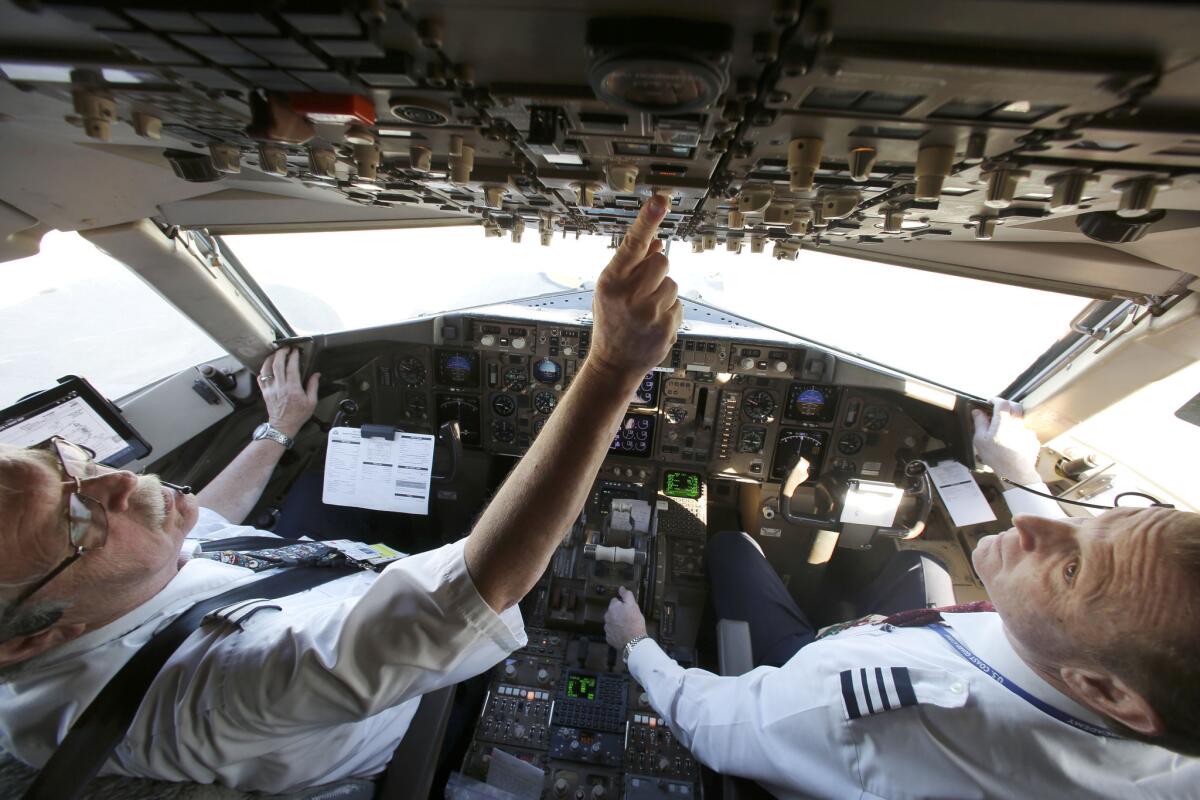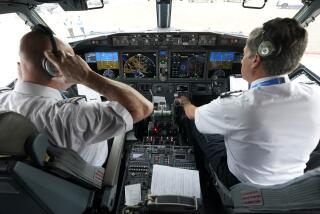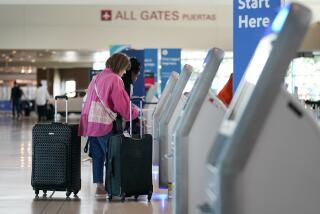Do airlines face a pilot shortage or a salary problem?

- Share via
Hundreds of airline pilots are set to retire soon and new federal rules require existing pilots to get more rest between flights.
Does that signal a pilot shortage for the airline industry?
It depends on who you talk to.
The effect of a pilot shortage would hit travelers hard, as airlines would have to cancel flights and raise fares for those remaining flights that are fully staffed. Airline executives have recently blamed a pilot shortage for cuts to air service.
Bryan Bedford, chief executive of Republic Airways Holdings Inc., said last month that the regional carrier would be removing 27 of its 243 aircraft from service because of a lack of qualified pilots. United Airlines Chief Executive Jeff Smisek cited financial losses and a pilot shortage for United’s decision to close its Cleveland hub last month.
There are signs of a shortage.
For example, the number of pilots who are forced to retire in the U.S. jumped from 592 in 2013 to 1,367 last year. This is projected to rise to 1,519 this year, according to aviation consultant Kit Darby.
Airlines will need to spend the next decade hiring an average of 1,900 to 4,500 pilots a year to meet growing travel demand, according to federal estimates.
Fewer pilots will be available to fly under rules that increase the amount of rest pilots get between flights and regulations the require extra training and new tests to sit in the cockpit. The changes were ordered by federal officials after the 2009 crash of Colgan Air near Buffalo, N.Y.
But a study released last week by the Government Accountability Office found mixed evidence of a pilot shortage. The GAO said a large number of qualified pilots may be working abroad, in the military, or in other occupations where salaries are higher.
The world’s largest pilot union released a statement last week, saying that the only reason pilots are in short supply is because regional airlines are not willing to pay an adequate, livable salary. Regional airlines carry about 22% of all domestic passengers.
The average starting salary for new first officers in the regional airline industry is only $22,400, according to the Air Line Pilots Assn. International, which represents nearly 50,000 pilots at 31 airlines in the United States and Canada.
“There is a shortage of pay and benefits for pilots in the regional airline industry, not a shortage of pilots who are capable and certified to fly the airlines’ equipment,” said Capt. Lee Moak, president of the pilots association.
ALSO:
American Airlines ends bereavement fares
Delta Air Lines revamps rewards program
Travel industry urges Americans to use vacation time
More to Read
Inside the business of entertainment
The Wide Shot brings you news, analysis and insights on everything from streaming wars to production — and what it all means for the future.
You may occasionally receive promotional content from the Los Angeles Times.











